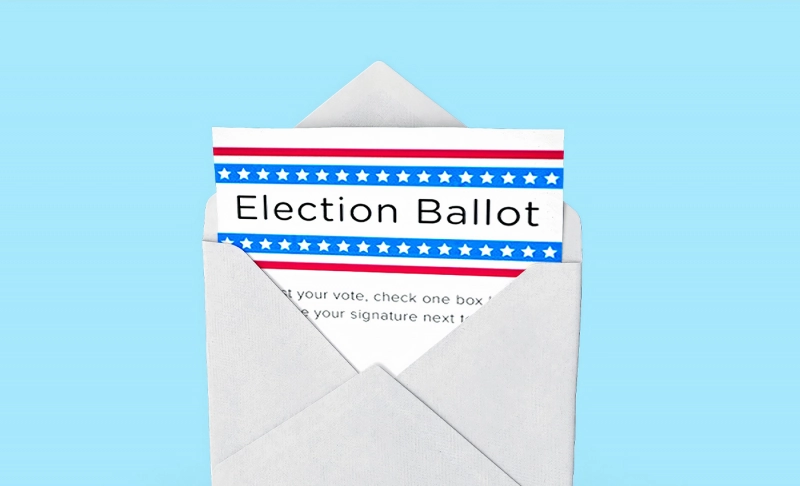By: Archana Naresh
November 26 2020

Hopkins said that he did not recant his story but provided no evidence to support his claim. An investigation into the matter is currently ongoing.
Hopkins said that he did not recant his story but provided no evidence to support his claim. An investigation into the matter is currently ongoing. Richard Hopkins, a Pennsylvania postal worker who alleged voter fraud by his supervisor, recanted his allegations in an interview with federal agents on Nov. 9. On Nov. 10, the United States Postal Service (USPS) suspended Hopkins without pay pending the completion of an investigation. According to the Washington Post report, three officials briefed that Richard Hopkins claimed that ballot tampering allegations are not true, and he signed an affidavit recanting his claims. Hopkins initially claimed in a signed affidavit that on Nov. 5 that he heard the postmaster of his facility tell a colleague that he was backdating ballots to make it appear that they were collected on Election Day instead of the day after. In Pennsylvania, ballots postmarked for on or before Election Day are valid as long as they are received within three days of the election. Hopkins’ allegations were cited by a Trump campaign lawsuit seeking to delay the Pennsylvania certification results. On Nov. 9, however, Hopkins reneged on his initial allegations and said he made assumptions based on snippets of conversations he overheard in a noisy mail facility. In a recording of Hopkins’ interview with federal agents, an agent from the USPS Office of Inspector General asked Hopkins if he stood by his sworn statement that the postmaster was backdating ballots collected after Election Day. Hopkins answered: “At this point? No.” Hopkins said he regretted signing the affidavit because it overstated what he knew and saw he said. At that time, Hopkins additionally signed a revised statement that undercut his earlier affidavit. On Nov. 11, following a Washington Post story reporting on his recanting, Hopkins posted a YouTube video in which he claimed he had not recanted on his previous allegations and that WaPo was publishing false stories. Project Veritas, the organization that initially aired Hopkins’s claims, said the interview recording shows that Hopkins was coerced into recanting. However, during the interview, which was recorded and shared by Hopkins and Project Veritas, federal agents repeatedly informed Hopkins that his participation in the interview was voluntary. Hopkins additionally agreed to sign a document stating that he was not coerced. Project Veritas’ role in the matter has raised suspicions for some. A right-wing organization, Project Veritas, uses deceptive tactics, such as the non-consensual recording of Hopkins’ interview, to expose what it says is liberal bias and corruption in the mainstream media and government. During his interview, Hopkins told the federal agents that Project Veritas wrote the affidavit he originally signed. Project Veritas has a long history of publicizing right-wing whistleblowers’ allegations. These whistleblowers would then receive tens of thousands of dollars through GoFundMe fundraisers. A since-deleted GoFundMe fundraiser for Hopkins had raised over $100,000. This pattern has led some to question whether Project Veritas “is offering its million-plus followers on social channels as an incentive to sources before and as they come forward.” Daily Dot noted that "just about every whistleblower who comes to the organization simultaneously winds up with tens of thousands of dollars on GoFundMe." This brings to question whether Project Veritas offers its million-plus followers on social channels as an incentive to sources before and as they come forward. On Nov. 9, James O'Keefe, founder of Project Veritas, offered $25,000 on Twitter to anyone for first-hand election fraud tips in Pennsylvania. Lindsey O. Graham, in a letter to the Justice Department urged for a federal investigation and the Postal Inspection Service is looking into this matter and it's an ongoing investigation.